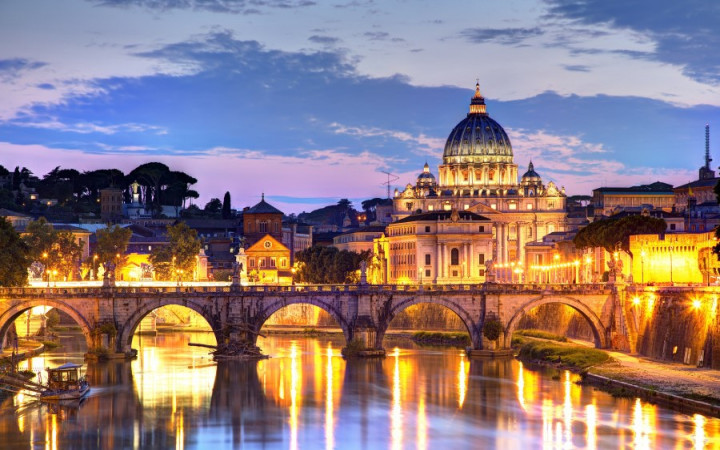When you get home from school or soccer practice, are you hungry? The smell of your favorite meal wafting out from the kitchen can make your tummy rumble and your mouth water. You want to eat right now! But your parents tell you it'll be a while yet. If you're super hungry, you might be tempted to shout, "Hurry up! I'm hungry!" Of course, your parents might reply with a tried and true quote of their own: "Rome wasn't built in a day!"
Have you ever heard an adult friend or family member use that phrase before? What's the deal? What does Rome have to do with fixing dinner and your empty belly?
The phrase "Rome wasn't built in a day" has been around a long time. Scholars believe it was first developed in French by a cleric in the 12th century. Its meaning is clear: you can't rush greatness. The best things in life are worth waiting for, and great works — whether it's architecture, art, or simply a delicious dinner — take time.
So what's so great about Rome anyway? Historians will tell you that there were a lot of great things about ancient Rome. In fact, the ancient Roman Empire lasted for nearly a millennium, encompassing most of Europe and much of western Asia and northern Africa at its peak. Its lasting legacy can still be seen today all over the world.
An empire centered on Rome certainly wasn't built in a day. Humans have lived in the area known as Rome for at least 6,000 years. Legend has it that Romulus and Remus, the twin sons of Mars, the god of war, founded the city along the banks of the Tiber River. After killing his brother, Romulus named the city after himself and became the first king of Rome.
Some of Rome's most-significant legacies can still be seen in modern-day governments. After years as a monarchy, Rome became a republic, or a government of the people. Many governments around the world, including that of the United States, are modeled on the Roman Republic and its key components, including balance of powers, representative government, and veto powers.
Rome's legal system also influenced legal systems around the world. Fundamental ideas, such as private property, contracts, wills, civil rights, and trial by jury, all got their start in the laws of the Roman Empire.
Perhaps one of ancient Rome's most lasting legacies, however, is the number of modern languages spoken by millions around the world. The language of the Romans, Latin, spread over much of the world during the Roman Empire. Languages that evolved from Latin, known as Romance languages, include Italian, Spanish, French, and Portuguese. These languages are spoken by more than 800 million people today.
The Roman Empire also created enduring legacies in the areas of architecture, engineering, construction, and science. From the buildings we build to the roads we drive on, many of our modern engineering and scientific feats can trace their roots back to ancient Rome.
The ancient Romans can even claim to have influenced our alphabet, our calendar, and the spread of the world's largest religion, Christianity. Even though it wasn't built in a day, Rome has had a lasting influence on many aspects of our daily lives even into the modern age.





